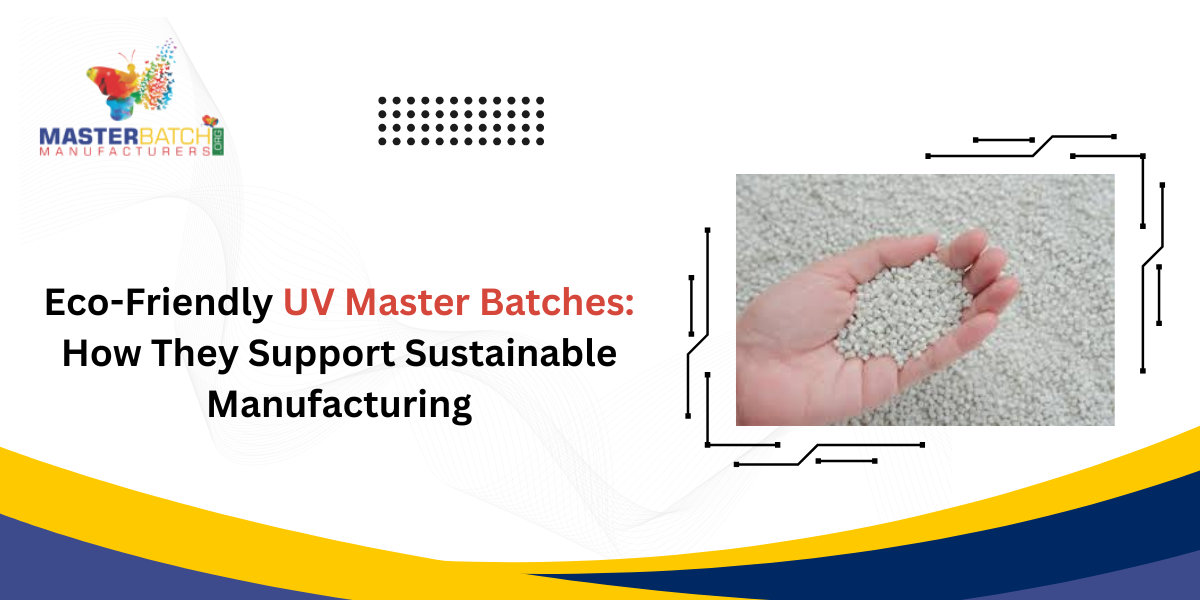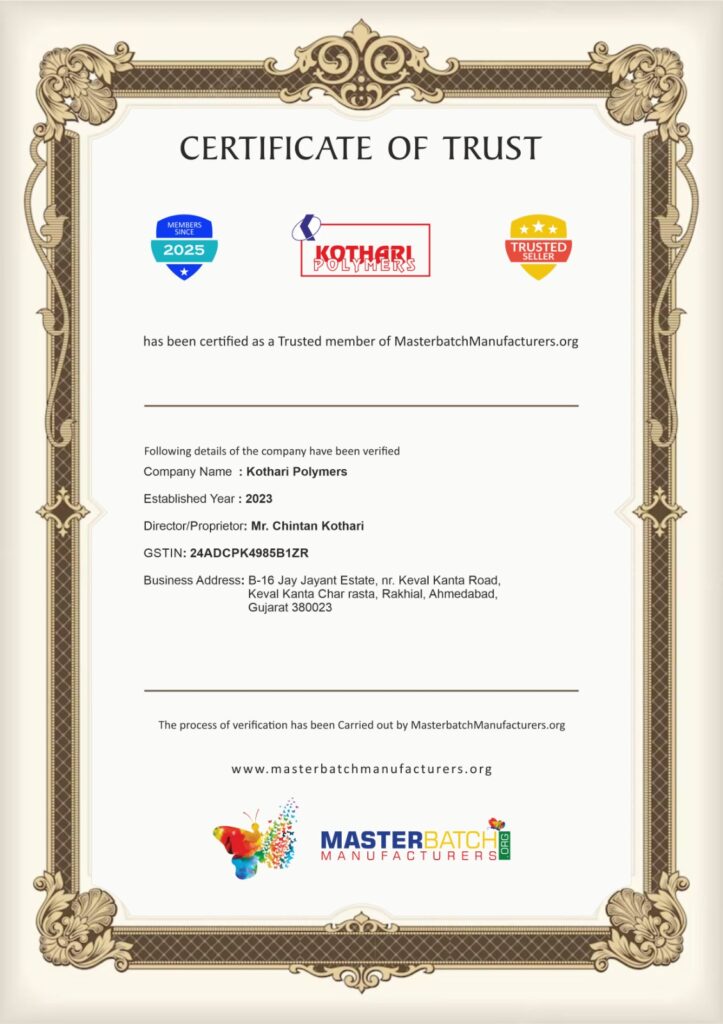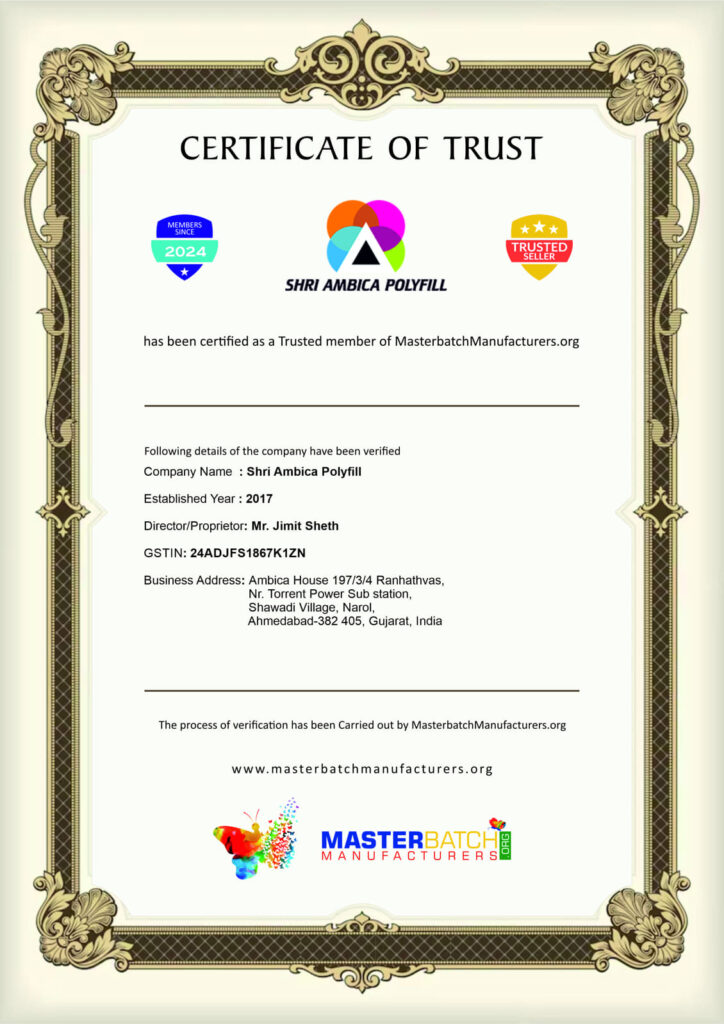Let’s be honest. Plastics are everywhere. From water bottles to garden furniture, greenhouse films, packaging – you name it. And most of it ends up outdoors at some point. The sun hits it, it fades, cracks, loses strength. And what do manufacturers do? They replace it, remake it, spend more money, and use more resources. Not great for the planet. Not great for your pocket, either. Enter UV Master batches. And not just any UV Master batches – the eco-friendly ones.
If you have never heard about it, don’t worry. You’re not alone. Most people think plastic is just plastic. But here’s the truth: a tiny additive can change the game.
What are UV Master batches?
To be frank, it’s simple. Imagine sunscreen for plastic. That’s exactly what it is. You mix it into the polymer during manufacturing. It has UV stabilizers – chemicals that block or absorb ultraviolet rays from the sun. Without it, plastics fade, get brittle, start cracking. With it, they stay strong, shiny, and last years.
Now, the eco-friendly versions take it a step further. They use non-toxic, safer stabilizers. So, they’re good for the environment while still protecting the plastic. Less pollution, less chemical waste, better product life.
Why it’s a big deal for sustainable manufacturing
Look, sustainability is often just a buzzword. But in practice, it’s about a few things:
- Use less.
- Waste less.
- Make stuff last longer.
- UV Master batches tick all three.
- It makes plastic last longer, so fewer replacements are needed.
- Fewer replacements mean less raw material use.
- Less material use = lower carbon footprint.
- Safe, non-toxic additives = less environmental damage.
To be honest, that’s real sustainability, not just a sticker on your product.
How UV Master batches help industries
You might be thinking – “Okay, that sounds good, but where does it actually matter?” Everywhere, plastics meet sunlight. Here are some examples:
- Agriculture: Greenhouse films, pipes, irrigation tubes. Constant sun exposure. Master batches UV has a longer longevity.
- Garden furniture: chairs, tables, benches, storage boxes for the garden. They undergo the most severe weather conditions and do not show any signs of life or color alteration.
- Packaging: For containers, films, and wraps exposed to light, it keeps color and quality intact.
- Automotive: Car interiors, dashboards, bumpers – fading and cracking are reduced.
- Water tanks & construction materials: These are outdoors all the time; UV Master batches extend lifespan.
Basically, if it’s plastic, and it meets the sun, UV Master batches matter. And the eco-friendly kind means you’re not adding chemical waste into the environment.
Benefits you’ll actually see
Let’s break it down, plain and simple:
- Longer product life: Plastics stay durable, shiny, and strong. Replacement cycles are slower.
- Cost savings: Sure, it costs a bit to add, but jokes apart, it saves more in the long run. Reduced output, reduced materials, reduced energy.
- Enhanced recallability: The plastic goes through the recycling process and does not degrade as fast so it is the more the recycling it becomes.
- The total impact on the environment is reduced: The major assets in the whole picture are replacements, waste, and the use of safer additives being less.
- Better printability and aesthetics: Color, gloss, and surface finish stay intact, which is crucial for packaging and products with branding.
Honestly, it’s kind of amazing that a small additive does so much.
How it actually works
UV rays break chemical bonds in polymers. That’s why plastic fades or becomes brittle. UV Master batches has stabilizers that absorb or neutralize these rays before they can harm the polymer chains. Think of it as taking the hit for the plastic. Without it, the sun wins. With it, your plastic keeps looking new longer.
Eco-Friendly UV Master batches vs Normal UV Master batches
Here’s the difference:
- Normal UV Master batches: Works fine, protects plastic, but may contain chemicals that are harmful if released.
- Eco-Friendly UV Master batches: Use safer additives, reduce chemical waste, are compatible with recycling, and are better for sustainable production.
To be frank, there’s no reason not to use the eco-friendly type if your goal is sustainability.
Why small manufacturers should care
You don’t need to be a huge industrial giant to benefit. Even small-scale manufacturers can save money and resources with eco-friendly UV Master batches. Less broken stock, fewer replacements, less raw material wasted. That’s efficiency and sustainability rolled into one.
Real-life impact
- Across industries, manufacturers using UV Master batches report:
- Fewer complaints about fading or cracked products.
- Reduced raw material costs.
- Less energy consumption due to fewer production cycles.
- Higher customer satisfaction.
To be honest, if you’re producing plastics without it, you’re leaving money and sustainability on the table. Explore advanced UV Masterbatch solutions for sustainable and durable plastic production.
Follow us on Instagram and Facebook for updates on innovative Masterbatch technologies and sustainable plastic solutions.
Conclusion
UV Masterbatch might not be the most exciting product, but it actually does the very important and without any noise function of plastic manufacturing. Protecting goods, minimizing waste, and facilitating green planting.
The conversion to eco-friendly UV Master batches is not only a wise decision but a responsible action as well. Such little actions lead to big consequences. And to be honest, in today’s world of low-priced, short-lived plastics, it is high time that the producers started noticing.
FAQs – Keep it Real
- Why do plastics need UV Masterbatch?
Let’s be honest – the sun kills plastics slowly. This additive saves them.
- Are eco-friendly UV Master batches really safe?
Yes. They avoid harsh chemicals, reduce pollution, and still protect plastics.
- Will it work for all plastics?
Mostly, yes. PE, PP, PET – the common ones. Just adjust the mix.
- Does it cost a lot?
A bit upfront. But jokes apart, it saves much more in the long run.
- Can small companies use it?
Totally. Even tiny producers can extend product life and reduce waste.






